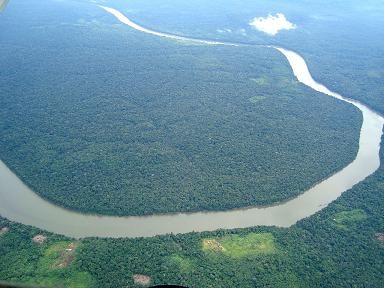Brazil’s national policy for low carbon sustainable development
Following the Copenhagen climate change conference, Brazil announced its Nationally-Appropriate Mitigation Actions (NAMAs) to reduce its projected greenhouse gas emissions by 2020.

The country’s voluntary emission reduction target, between 36 and 39 per cent, formed the basis of Brazil’s national policy on climate change, approved at the end of 2009, to ensure that national economic and social development is compatible with the Brazilian contribution to protecting the global climate system.
Since 2010, Brazil has implemented its five NAMAs to reduce deforestation; to promote a low carbon emission agriculture; to deploy an energy plan to increase the use of hydropower, biofuels, renewables, and energy efficiency; and to stimulate more efficient production and use of charcoal for the iron/steel industries.
Additionally, in 2013 the Brazilian government approved four new sector plans for industry (aluminium, cement, paper & pulp, chemistry, glass, and iron/steel sectors), mining, transport, and health (to increase preparedness and decrease vulnerability of the public health system). These plans go beyond merely reducing emissions; they also serve as the basis to increase the efficiency and competitiveness of important economic sectors in Brazil.
Coordinated decision-making
The climate change policy has promoted a better coordination of efforts among governmental institutions: the Ministry of the Environment coordinates the steering committee for national policy, which responds to the inter-ministerial committee for climate change, under the coordination of the Chief of Staff of the Presidency, therefore achieving the highest levels of decision-making on climate change policy in Brazil.
The policy also benefits from qualified contributions of the Brazilian Forum on Climate Change...created to raise awareness and mobilise Brazilian society
The policy also benefits from qualified contributions of the Brazilian Forum on Climate Change, chaired by the President of Brazil, with a broad participation of governmental and non-governmental representatives, created to raise awareness and mobilise Brazilian society to discuss and take positions on climate change. The Forum also assists the Brazilian Government in the incorporation of climate change issues at various stages of public policy.
There is also a strong academic contribution to the policy, particularly from the Brazilian Panel on Climate Change, a national scientific body that aims to gather, synthesise and evaluate scientific information on the relevant aspects of climate change in Brazil after the publication of National Assessment Reports, and form a scientific climate network that gathers over 300 national experts running publicly funded research in 15 different thematic areas.
The Brazilian Government has also deployed financial instruments to support the implementation of the climate policy, such as the Climate Change Fund, the Amazon Fund, the low carbon emission agriculture credit line, supplemented by international programmes such as the Forest Investment Program, GEF funding, and donor countries’ contributions.
Positive outcomes
This policy-enabling environment has already produced emphatic results. Deforestation has been reduced by 79 per cent since 2004, representing a spectacular reduction of over 30 per cent in emissions; the low carbon agriculture programme has over 20,000 contracts with farmers, and invested around US$3.2 billion since 2010; in 2014 the Ministry launched a renewable biomass-based charcoal plan for the iron and steel industry, sponsored both by the Climate Change Fund and the Global Environment Facility (GEF).
The Climate Change Fund is sponsoring over 100 projects, more than 50 per cent on adaptation measures, and the Amazon Fund, which has raised almost US$400 million in financial contributions, is supporting over 50 projects. On the international arena, Brazil has submitted its forest reference emission level for REDD+ payments for results to the UNFCCC in June this year.
The climate change policy also relies on the bedrock of other policies in Brazil, particularly the new forest code and its main instrument, the rural mapping and registry (CAR) system, which is mandatory for all 5.5 million farms in Brazil. The CAR provides state of the art technologies and capabilities for land use planning at a scale never experienced before in Brazil.
In addition, the ARPA Protected Areas programme of the Amazon, in implementation since the late 1990s, is expanding and consolidating a total of 60 million hectares of protected area, roughly the combined land area of Portugal and Spain. The recently launched third phase of ARPA’s Fund, at US$215 million, will run for the next 25 years, with contributions from the Brazilian Government, the Brazilian Biodiversity Fund (FUNBIO), the World Bank, and other governments and donors.
Next steps and challenges ahead
The climate change policy in Brazil is evolving from a mainly command and control style of policy-making towards efficiency and low carbon emission policies. Nevertheless, challenges remain.
In 2013, Brazil began preparation of its National Plan for Adaptation, under the coordination of the Ministry of the Environment and the Ministry of Science, Technology and Innovation. Thematic networks have been constructed with the participation of experts, civil society and economic sector representatives, for the elaboration of knowledge with draft documents on water, food security and agriculture, coastal zones, biodiversity and forests, cities, industry, energy, transport and logistics, public health, and natural disasters. Public consultations and approval of the National Plan for Adaptation are expected in 2015.
Land use
The use of land and land resources plays a fundamental role in delivering national economic growth in Brazil, and will continue to do so in the future. In our efforts to build sustainability for the planet, Brazilian agriculture is a potential tipping point. Agribusiness leadership is imperative if Brazil is to continue its agricultural expansion and become more ecologically sustainable.
Agribusiness leadership is imperative if Brazil is to continue its agricultural expansion and become more ecologically sustainable
The solutions presented today by the new legislation on the use of forests and CAR are consistent with Brazilian law, economic growth needs, the long-term ecological future of Brazil, and ultimately the financial future of all who benefit from Brazil’s productive lands.
This scenario is compatible with a new policy framework that goes beyond deforestation, and ties in economic development, climate change and food security. This new framework, called Protection and Production, aims to encourage changes to current patterns of management and investment in order to build a strong foundation for future economic development and environmental conservation.
The core of this approach is to build better national understanding (public, private, academic, civil society) and coordination of the notion that land is an asset and therefore must be better and more efficiently used. In addition, a key requirement is to analyse and support implementation of policy regimes that link sectors and regions of the rural economy, already tied together by markets, organisation of rural households, and fiscal systems.
The international dimension
Finally, but equally important, it must be recognised that fighting global climate change can hugely benefit from international cooperation. No other nation has our experience or success in tackling
The achievements of this initiative prompted Brazil to approve in 2013 its first international funding programme with the Amazon Cooperation Treaty Organization (ACTO), to develop national strategies to monitor forest cover and changes in land use for all Amazonian countries.
The programme will run for four years at a total cost of US$17.2 million of which US$11.2 million comes from Brazil’s Amazon Fund. We are also looking at other initiatives to support African countries in the same field. In the same way that we have greatly benefited from international cooperation, particularly in our fight against deforestation, the Brazilian government is proud to be able to share its achievements with other countries.









